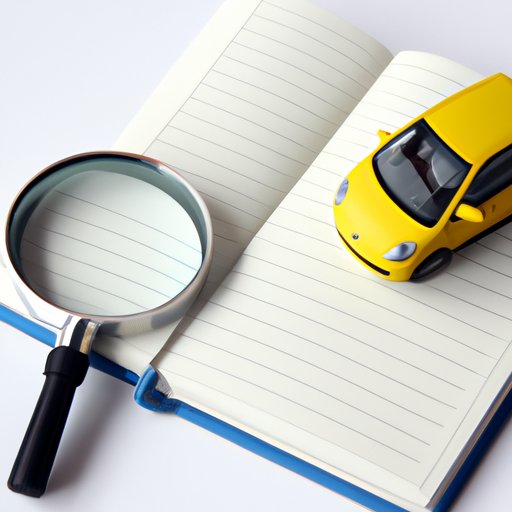
Introduction
Buying a used car can be exciting, but it can also be risky. You never know what problems you might encounter after the purchase, from hidden damages to serious accidents. Getting a car history report is the best way to avoid these issues, but it can be expensive. That’s where free options come in. In this guide, we’ll cover everything you need to know about checking car history for free, so you can hit the road with confidence.
Why Checking Car History Matters
It’s important to know a car’s history before buying it. Without understanding what the car has been through, you might accidentally buy a lemon that will cost you a lot of time and money down the road. Car history reports provide information on a car’s previous accidents, repairs, and ownership history, which can give you a better understanding of what you’re getting into. Plus, knowing a car’s history can also help you negotiate a better price.
Free Alternatives to Paid Car History Reports
Of course, the easiest way to get a car history report is to pay for one. However, there are free alternatives that can provide you with the same information. Online databases, government resources, and vehicle inspection services are all options you can explore.
Online databases such as the National Motor Vehicle Title Information System can provide basic information about a car’s title, odometer reading and more. Government resources such as the National Highway Traffic Safety Administration can provide information about safety recalls and other issues, while vehicle inspection services like CARCHEX and YourMechanic can provide an in-depth review of the car’s history and condition.
While each of the options can provide helpful information, there are pros and cons to consider. Online databases are convenient, but they won’t give you the full report. Government resources are reliable but might be limited in some areas. Inspection services are thorough, but you’ll need to pay for them.
Step-by-Step Guide to Checking Car History for Free
If you’re interested in checking a car’s history for free, here are three simple steps to follow.
- First, find the car’s Vehicle Identification Number (VIN), which is a unique identifier for every vehicle. You can usually find this number on the dashboard near the windshield, on the driver’s side.
- Next, use an online database or government resource to check the car’s history. We recommend using the National Motor Vehicle Title Information System (NMVTIS), which gathers information from state DMVs, junk yards and salvage yards.
- Once you have the report, take the time to read and interpret it carefully. Look for red flags like flood damage or salvage titles, which could indicate that the car has been significantly damaged in the past.
Tips and Tricks for Maximizing Your Car’s Value
Once you know a car’s history, the next step is to use it to your advantage. Here are some tips on how to maximize your car’s value:
- Use the report to negotiate a better price. If you find that the car has a history of accidents, repairs or other issues, ask for a lower price or request that the current owner makes necessary repairs.
- Be upfront about the car’s issues when selling it. If you’re the owner of the car, disclosing the issues upfront can help you avoid any nasty surprises during the transaction process. Plus, an honest buyer might still be interested in buying the car, even with its issues.
- Maintain a clean history. Keeping up with regular maintenance and avoid unsafe driving habits can prevent accidents and other damage, helping to maintain your car’s value over time.
Conclusion
Checking a car’s history is an important step in the process of buying or selling a car. By following the steps outlined in this guide and using the free resources available to you, you can protect yourself from costly surprises and negotiate a better deal. Remember to keep your car’s history in mind throughout its life, and you’ll avoid any potential pitfalls down the road.





